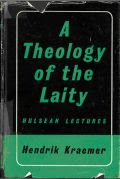After a short break for the summer holiday, we return with the third in our series exploring learnings for churches from the Imagine Pilot Project. Here we summarize a number of issues that churches we have worked with have faced that are around the question of process.
We have always sought to be clear with churches that Imagine outlines a process for churches to follow rather than a programme. In other words, this is not a tightly defined, one size fits all approach, but churches can follow a series of steps at their own pace and employing their own creativity.
Briefly outlined there are three phases to the process that we have walked through with churches:
- Discover a new way of looking at the church – spend time considering the connection between the gathered and the scattered modes of the church. To support this and stimulate imagination we have provided the two Imagine magazines and the Imagine DVD.
- Engage in active listening – for this we have given churches a survey which allows them to hear the issues their members on the Frontline and begins a dialogue in the congregation around this question.
- Make a number of simple actions (one degree shifts) that signal a new way of being as a congregation and that seek to honour the Frontline and enhance the connections.
Simple as this process is, in practice the churches we have worked with have encountered a number of natural challenges which means that this process isn’t necessarily as smooth or as easy as it may appear. The most common of these have been:
Losing momentum
Changing too much too quickly is not often a problem for churches! No, the challenge has often been to implement changes clearly, regularly and tangibly enough for people to see the difference that is being made and to ensure that momentum is not lost.















